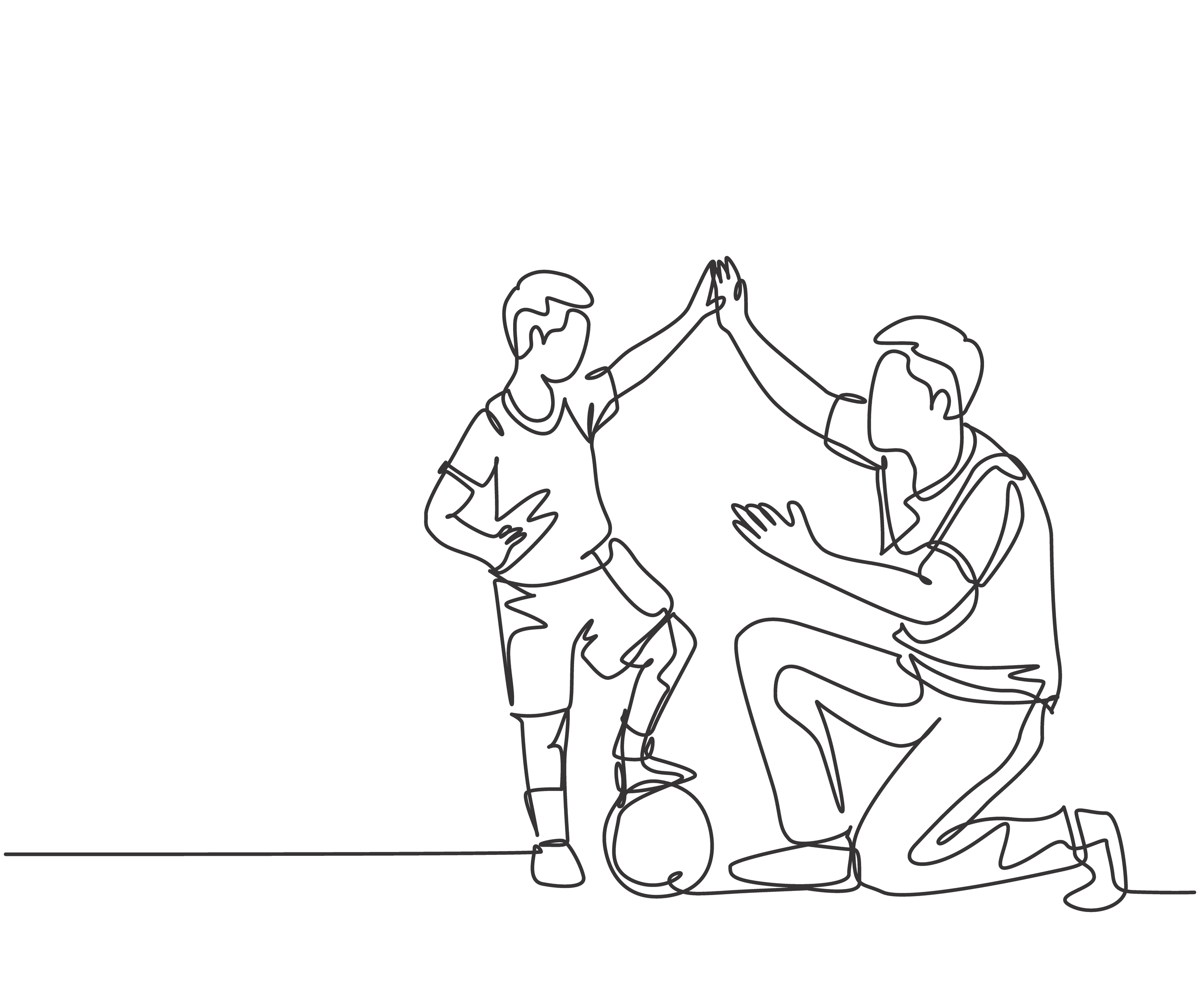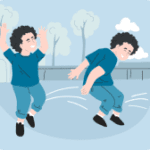Tourette Syndrome
What is Tourette Syndrome?
Tourette Syndrome (TS) is a neurological disorder that causes individuals to experience repetitive, involuntary movements and vocalizations known as tics. These tics can range from simple motor tics, such as blinking or facial grimacing, to complex tics that involve more coordinated movements or phrases. TS often begins in childhood, with symptoms typically emerging between the ages of 5 and 10.
What causes Tourette Syndrome?
The exact cause of Tourette Syndrome is not fully understood, but research indicates a complex interaction of genetic, neurological, and environmental factors. Family studies show that TS can run in families, suggesting a hereditary component. Neurological imaging and studies of brain function have also indicated that certain areas of the brain may be involved in the regulation of tics.
How is Tourette Syndrome diagnosed?
Diagnosis of Tourette Syndrome is primarily based on a clinical evaluation by a healthcare professional experienced in movement disorders. The clinician will assess the individual’s history of tics, their duration, and how they affect daily functioning. There are no definitive lab tests for TS, but ruling out other conditions that could cause similar symptoms is often part of the diagnostic process.
What are the common types of tics associated with Tourette Syndrome?
Tics can be classified into two primary categories: motor tics and vocal tics. Motor tics include actions like head jerking, shoulder shrugging, or complex sequences of movements, while vocal tics consist of sounds such as throat clearing, grunting, or, in some cases, inappropriate remarks—a phenomenon known as coprolalia.
Are there treatments available for Tourette Syndrome?
While there is no cure for Tourette Syndrome, various treatment options can help manage symptoms. These may include behavioral therapies like Comprehensive Behavioral Intervention for Tics (CBIT), medication to reduce tic severity, and supportive interventions that focus on social skills and emotional well-being. A tailored approach, often involving a multi-disciplinary team, is essential.
What is the role of behavioral therapy in managing Tourette Syndrome?
Behavioral therapy, particularly CBIT, is an evidence-based treatment for TS that teaches individuals to be more aware of their tics and to implement competing responses. This therapy helps patients learn strategies to reduce tics and cope with the pressure that may trigger them, ultimately improving their self-management and control.
Can Tourette Syndrome affect academic performance?
Yes, Tourette Syndrome can impact academic performance due to the symptoms associated with the disorder. Tics can interfere with concentration, and the social stigma or misunderstandings related to TS may lead to difficulties in school settings. It’s vital for educators to provide supportive environments and accommodations to help students succeed.
What is the relationship between Tourette Syndrome and ADHD?
Many individuals with Tourette Syndrome also have symptoms of Attention Deficit Hyperactivity Disorder (ADHD). The overlap between these conditions can affect attention, impulsivity, and behavioral regulation. Understanding this relationship is crucial for effective treatment and support, as addressing both conditions can lead to improved functional outcomes.
How can families support a child with Tourette Syndrome?
Families can support children with Tourette Syndrome by fostering a nurturing environment that reduces stress and anxiety, educating themselves about the disorder, and encouraging open communication about feelings and experiences. Establishing routines and implementing strategies to manage tics can also be beneficial.
Can Tourette Syndrome improve with age?
Many individuals with Tourette Syndrome experience a reduction in tic severity and frequency as they transition into adolescence and adulthood. However, some may continue to experience tics throughout life. The course of TS can be highly variable, and personal experiences may differ greatly.
What are some common misconceptions about Tourette Syndrome?
Common misconceptions about Tourette Syndrome include the belief that all individuals with TS exhibit coprolalia or that TS is purely a behavioral issue caused by poor parenting. In reality, TS is a neurological condition with a range of symptoms that can vary widely among individuals.
Are there any lifestyle changes that can help manage symptoms of Tourette Syndrome?
Lifestyle changes such as maintaining a regular routine, engaging in regular physical activity, ensuring adequate sleep, and practicing stress-reducing techniques (like mindfulness and meditation) can positively affect symptom management. These changes can help improve overall well-being and reduce tic exacerbation.
What resources are available for individuals and families affected by Tourette Syndrome?
Numerous resources are available, including organizations like the Tourette Association of America, which provides educational materials, support groups, and advocacy for those affected by TS. Online communities, local support groups, and healthcare providers are also valuable resources for information and peer support.
Can Tourette Syndrome lead to other mental health issues?
Yes, individuals with Tourette Syndrome may be at a higher risk for developing associated mental health conditions such as anxiety, depression, and obsessive-compulsive disorder (OCD). Early identification and intervention for these comorbidities are essential to providing comprehensive care for individuals with TS.
What should I do if I suspect my child has Tourette Syndrome?
If you suspect your child may have Tourette Syndrome, it is important to consult with a qualified healthcare professional, such as a neurologist or developmental specialist, who can conduct a thorough evaluation and recommend appropriate assessments and potential treatment options. Early intervention and support can make a significant difference in managing symptoms.
Is there a genetic component to Tourette Syndrome?
Yes, research suggests that Tourette Syndrome has a hereditary component, as it tends to run in families. Although the exact genetic mechanisms are still being studied, having a family history of TS or related conditions, such as OCD or ADHD, increases the likelihood of developing TS.
What are the common triggers for tics in Tourette Syndrome?
While the exact triggers can vary from person to person, common triggers for tics include stress, fatigue, excitement, and anxiety. Environmental factors, such as noise or changes in routine, may also exacerbate tic symptoms. Identifying and understanding these triggers can help individuals and their families develop strategies to manage and reduce tic frequency.
What role does nutrition play in managing Tourette Syndrome?
While no specific diet has been proven to directly improve symptoms of Tourette Syndrome, maintaining a balanced diet with adequate nutrients can support overall health and well-being. Some individuals may find that certain foods or additives could influence their tics, making a food diary a useful tool for identifying potential dietary triggers.
Are there support groups available for individuals with Tourette Syndrome?
Yes, there are various support groups and networks available for individuals and families affected by Tourette Syndrome. These groups provide a platform for sharing experiences, accessing resources, and receiving emotional support from others who understand the challenges associated with the disorder. Many can be found through local chapters of national organizations such as the Tourette Association of America.
How can therapy help with Tourette Syndrome?
Therapy can play a vital role in managing Tourette Syndrome by providing individuals with coping strategies and tools to better control their symptoms. Cognitive-behavioral therapy (CBT) is particularly effective, as it helps individuals recognize and modify negative thought patterns and behaviors associated with their tics. Habit reversal training, a specific type of CBT, teaches patients to become more aware of their tics and develop alternative responses, thereby reducing tic frequency. Additionally, therapy can offer emotional support, assisting individuals in addressing any anxiety, depression, or social challenges that may accompany the disorder. Overall, therapeutic interventions can enhance self-esteem and improve quality of life for those living with Tourette Syndrome.
What are other parents reading?
When most people think about the senses, the traditional five often come to mind: sight, sound, taste, touch, and smell.
Sensory processing disorder (SPD) often flies under the radar, yet it plays a crucial role in understanding the complexities of
Sensory Processing Disorder (SPD) is a complex condition that manifests in various ways, depending on how individuals process sensory information.
Find a Therapist
Find the physical therapist, occupational therapist, or speech language pathologist you are looking for!
Ask Us Anything
Whether you are looking for advice, have a general question about sensory processing, or are looking for resources - we are here to help!
Ask Us Anything
Submit Your Story
Share your story about your child. Let’s celebrate milestones and learn more about challenges.












 Speech Therapy
Speech Therapy Physical Therapy
Physical Therapy Occupational Therapy
Occupational Therapy
